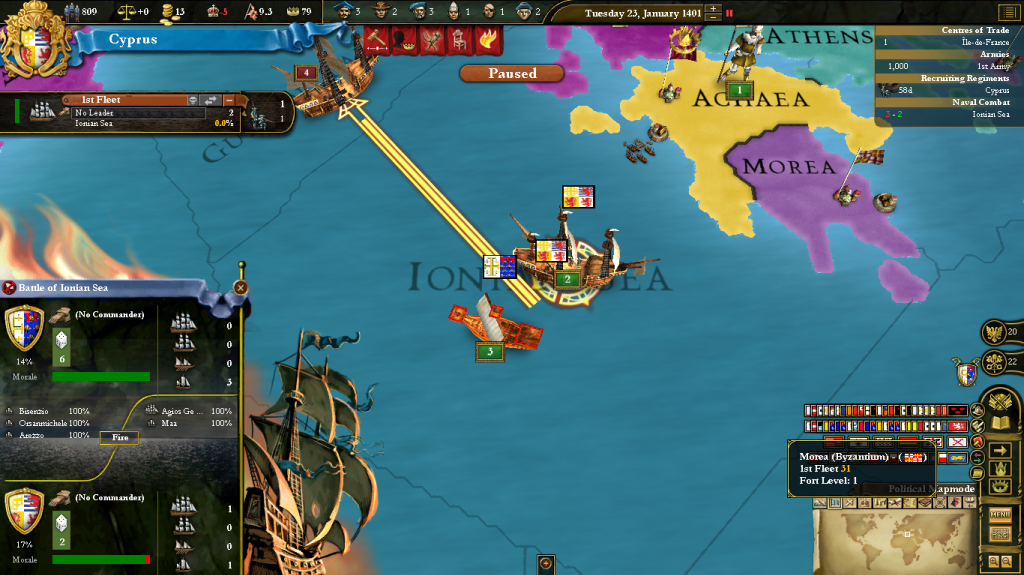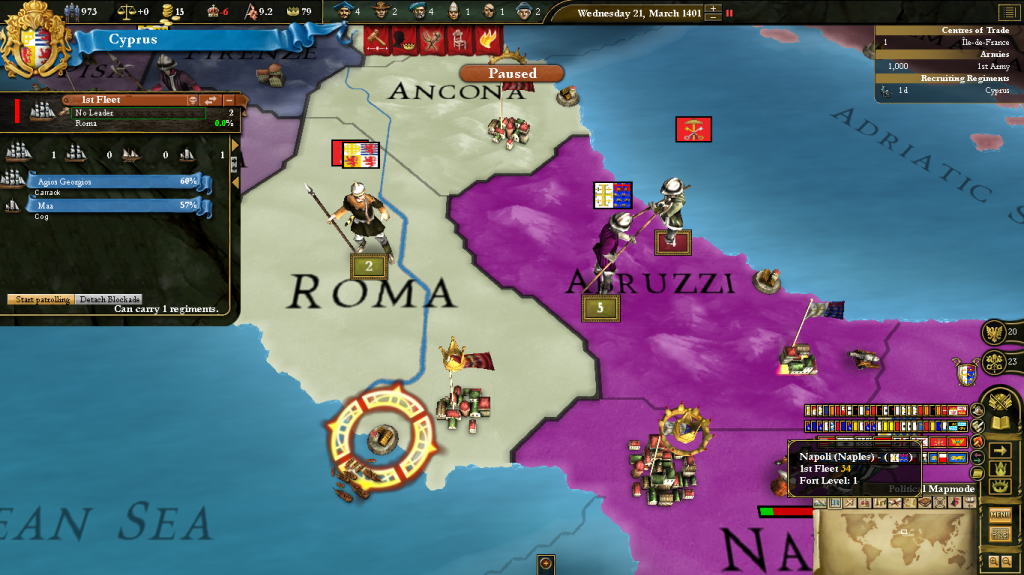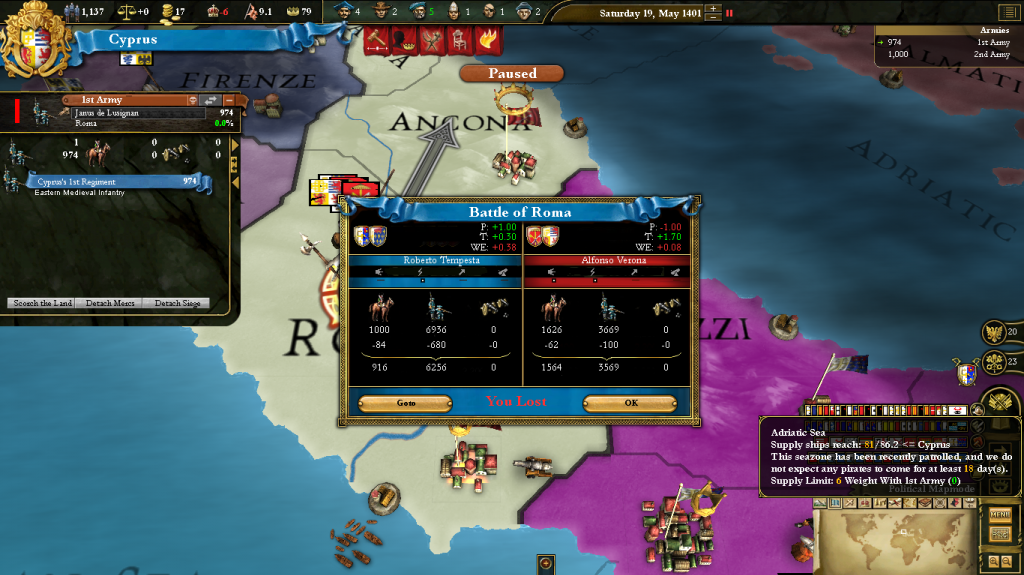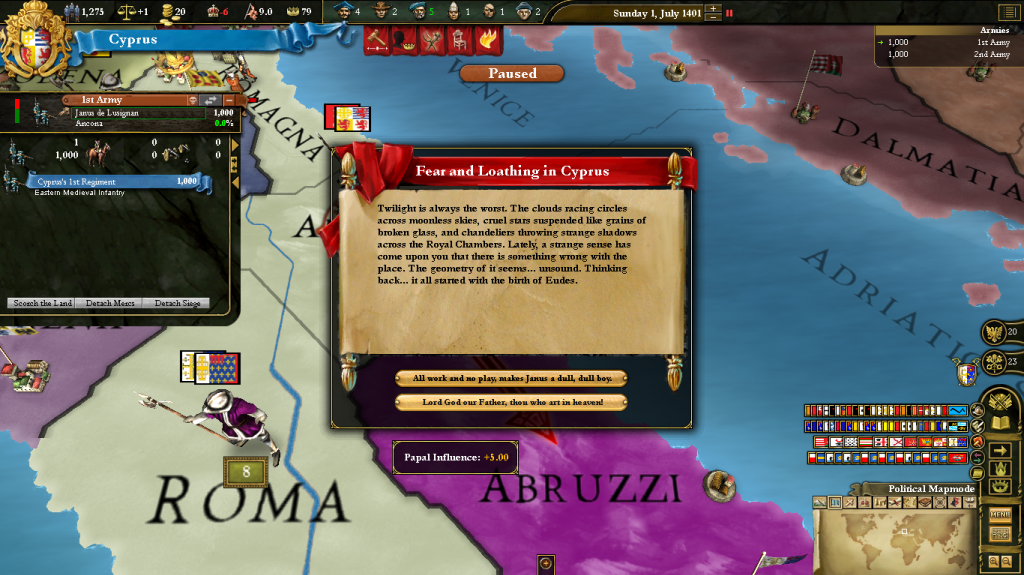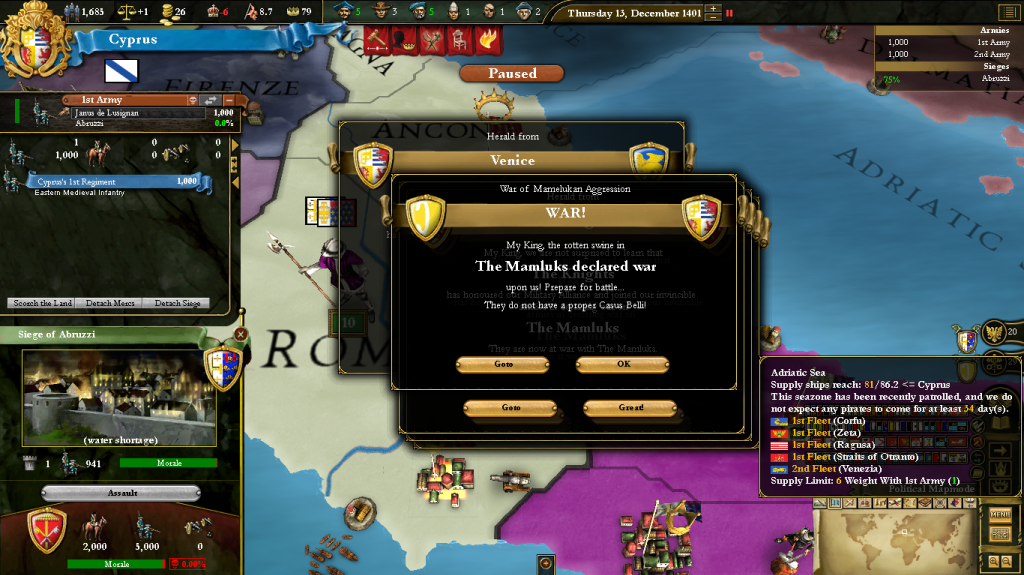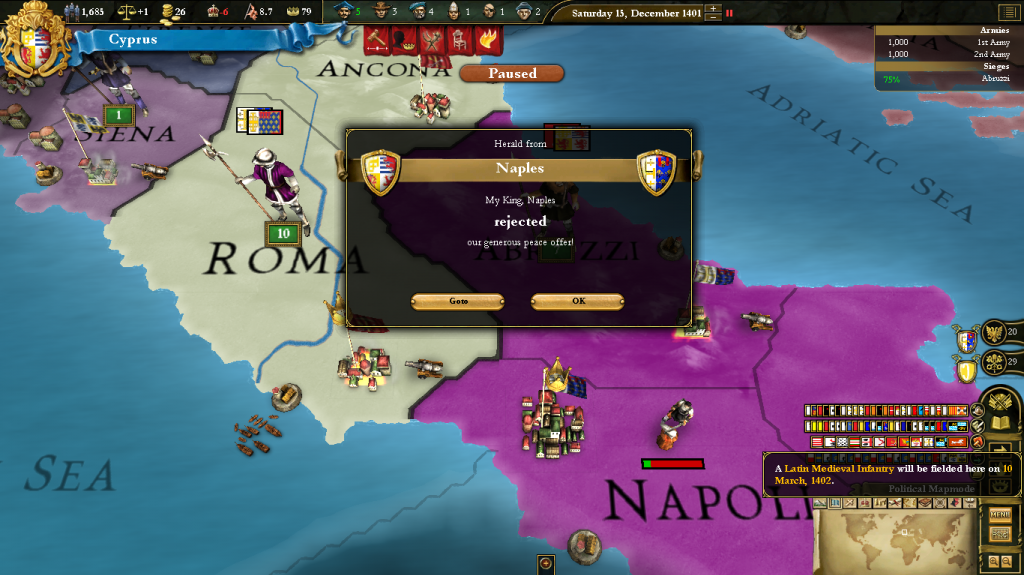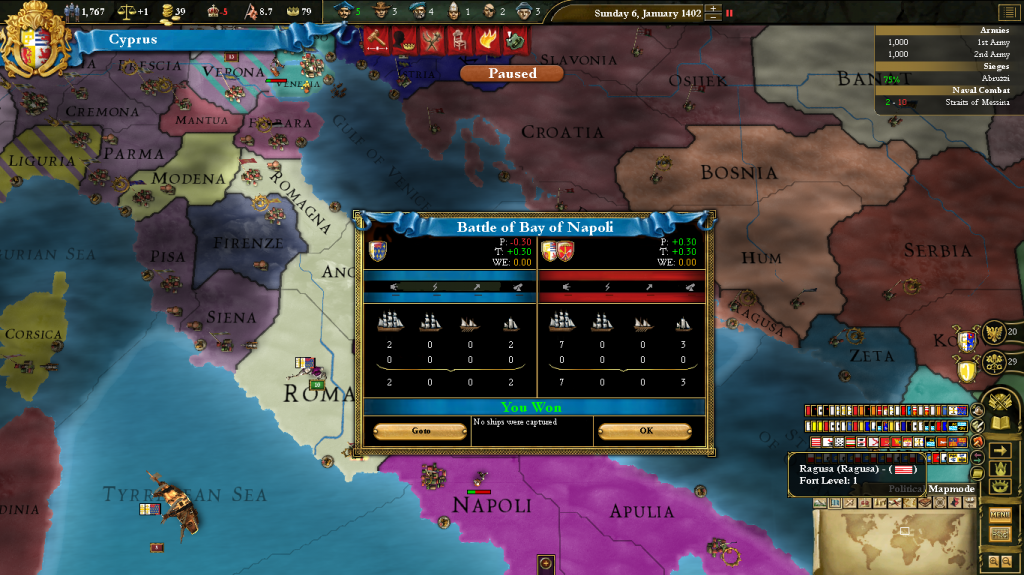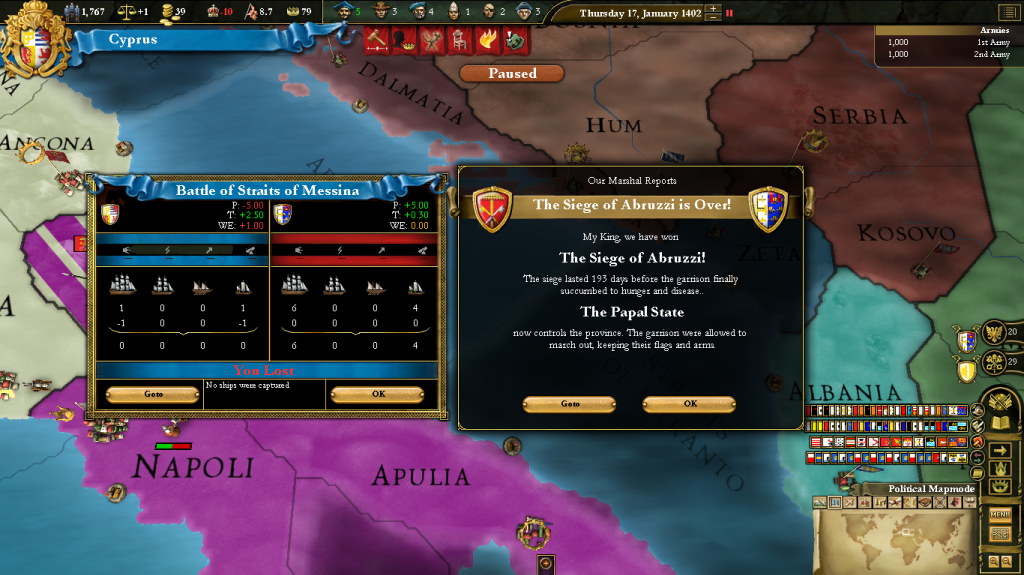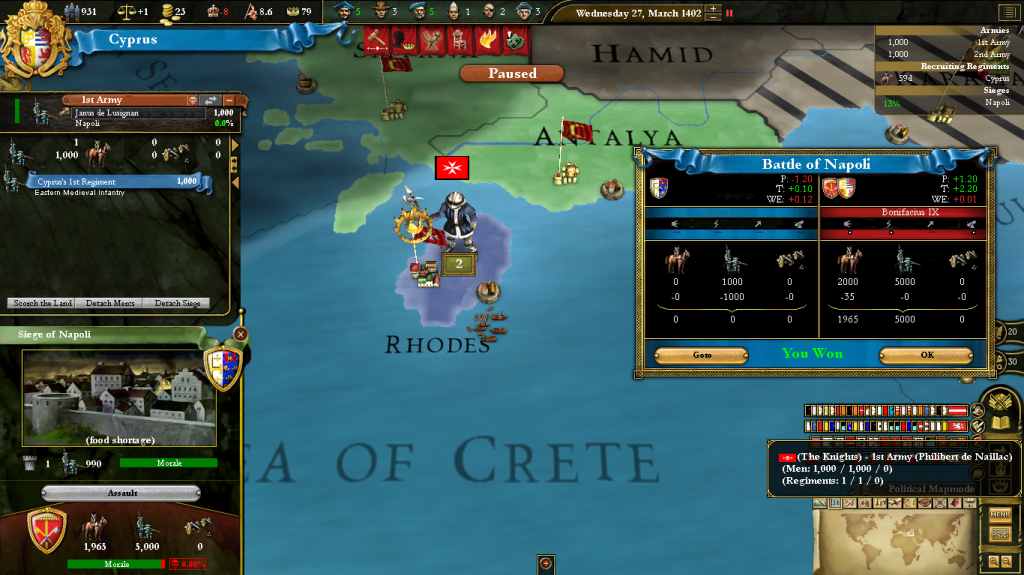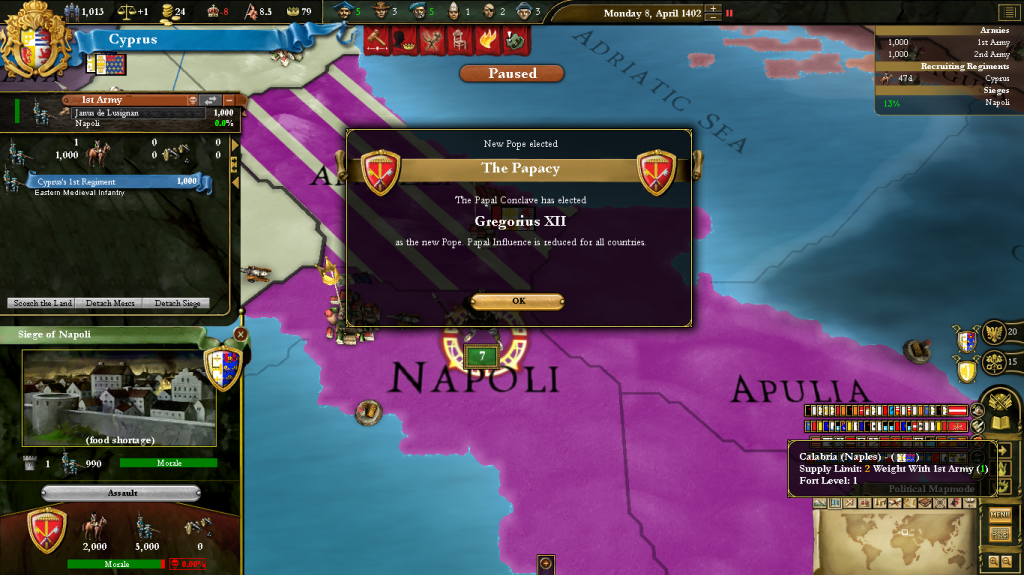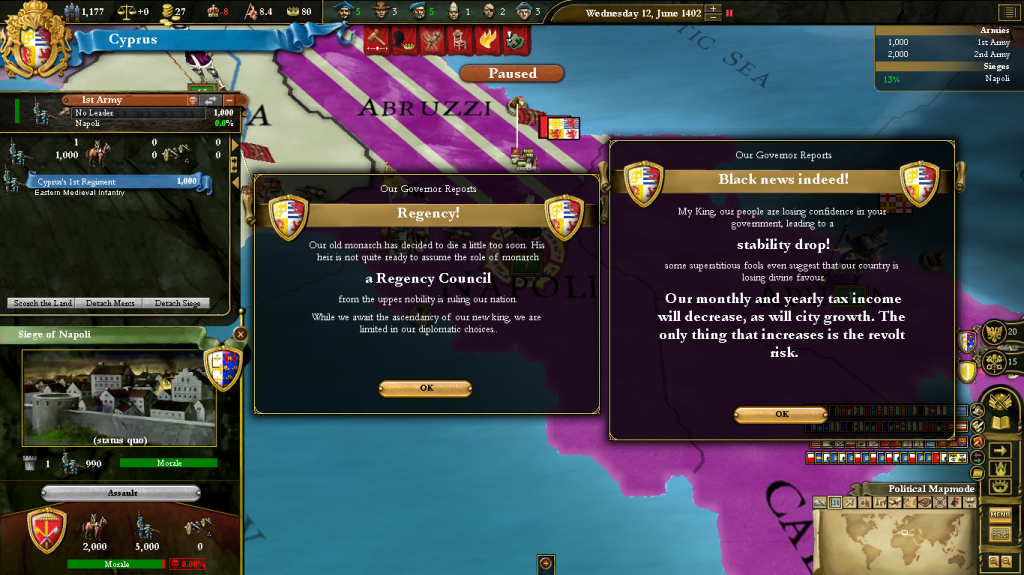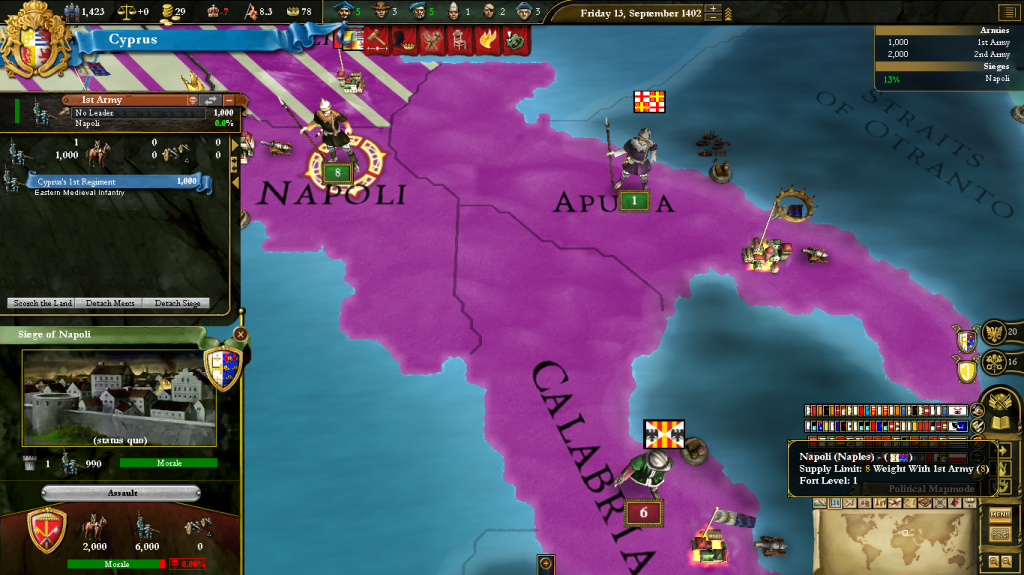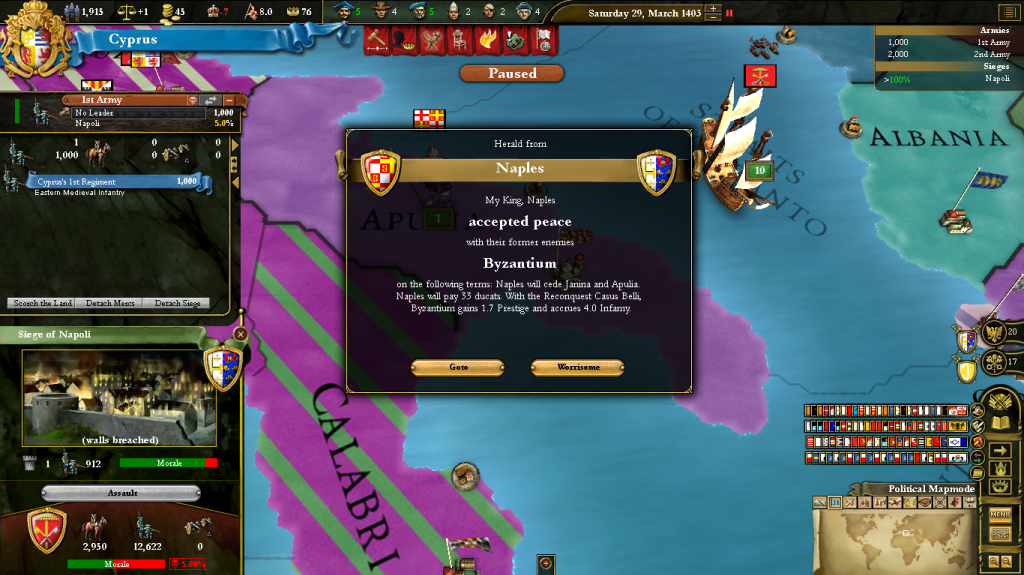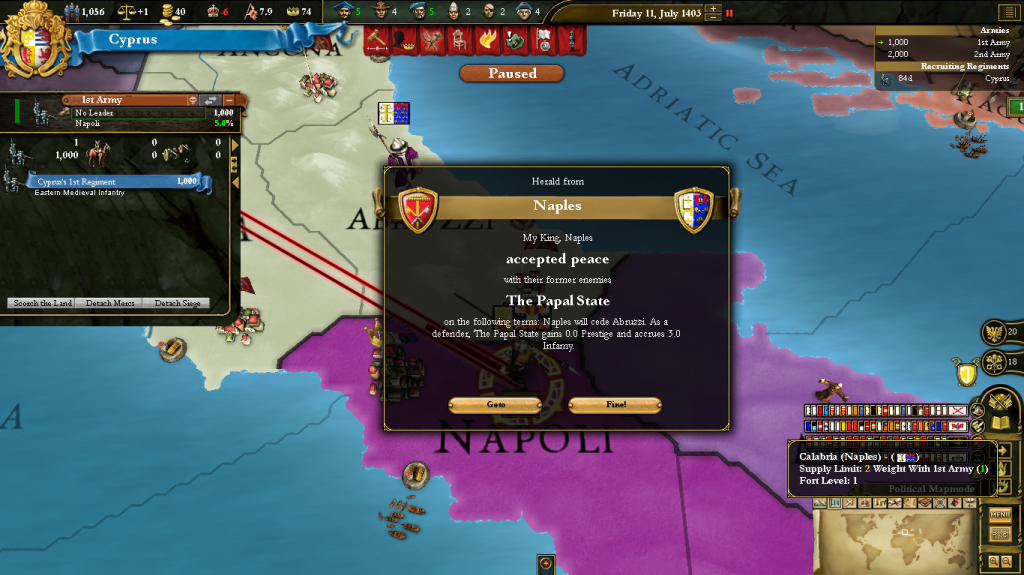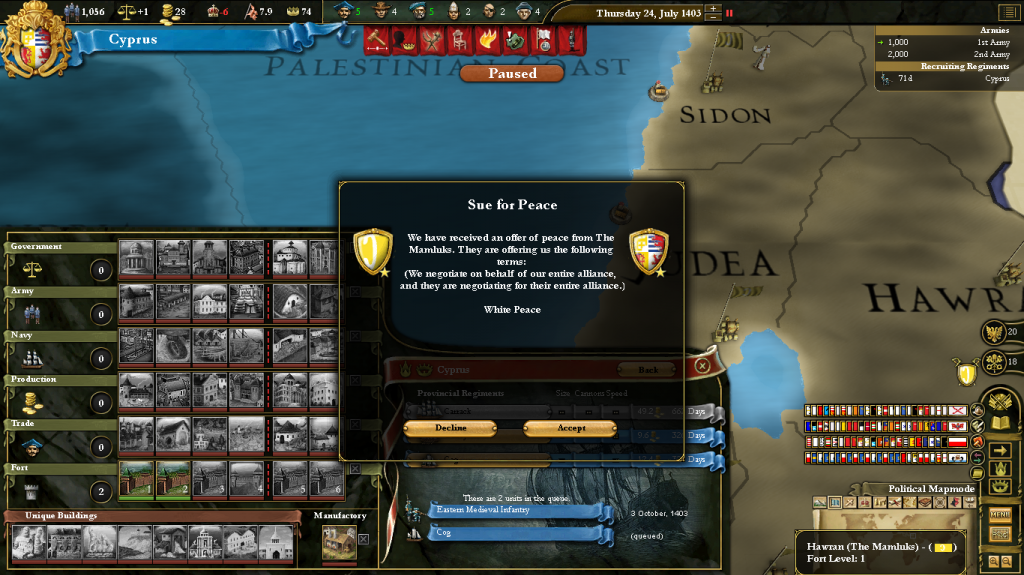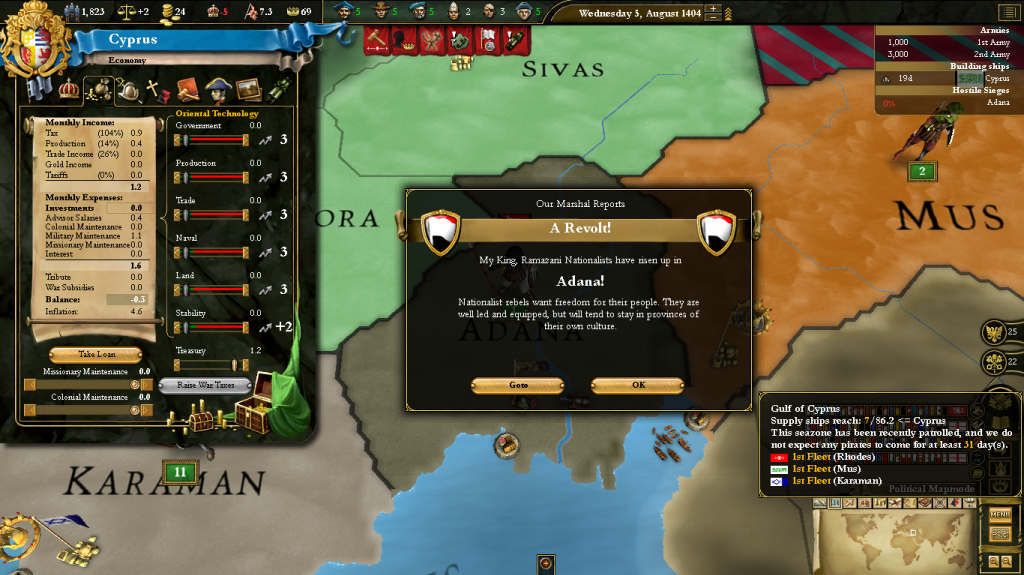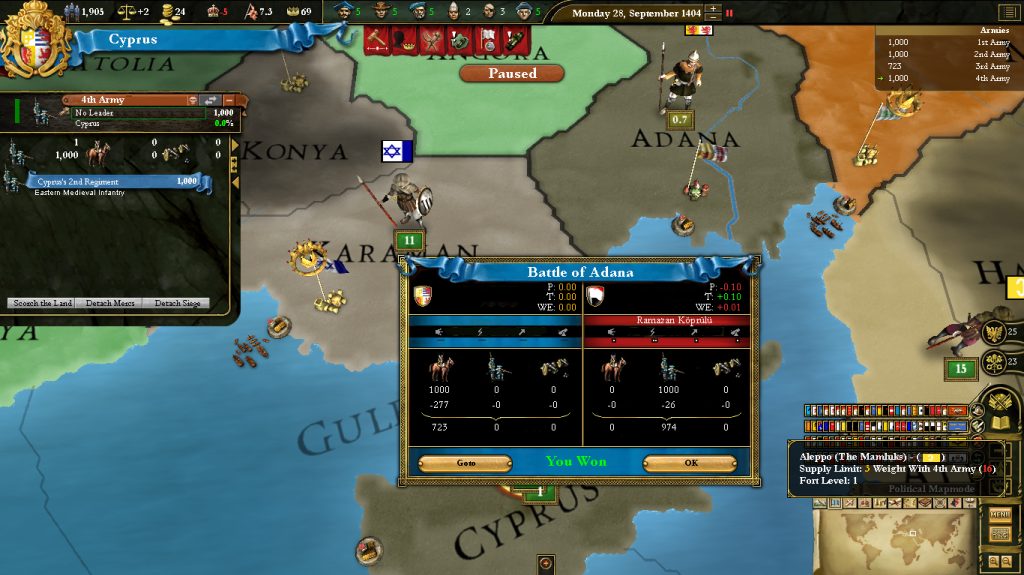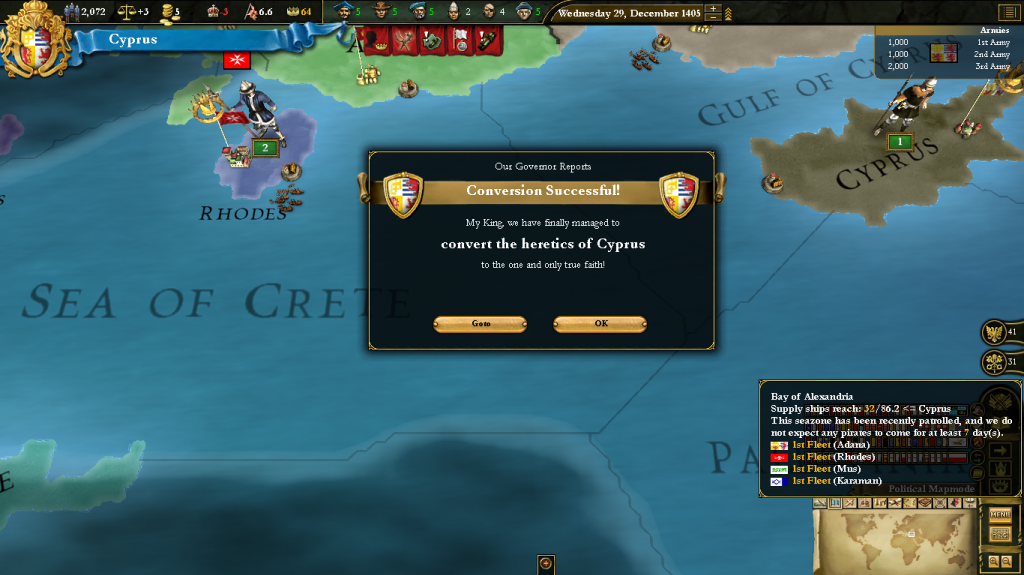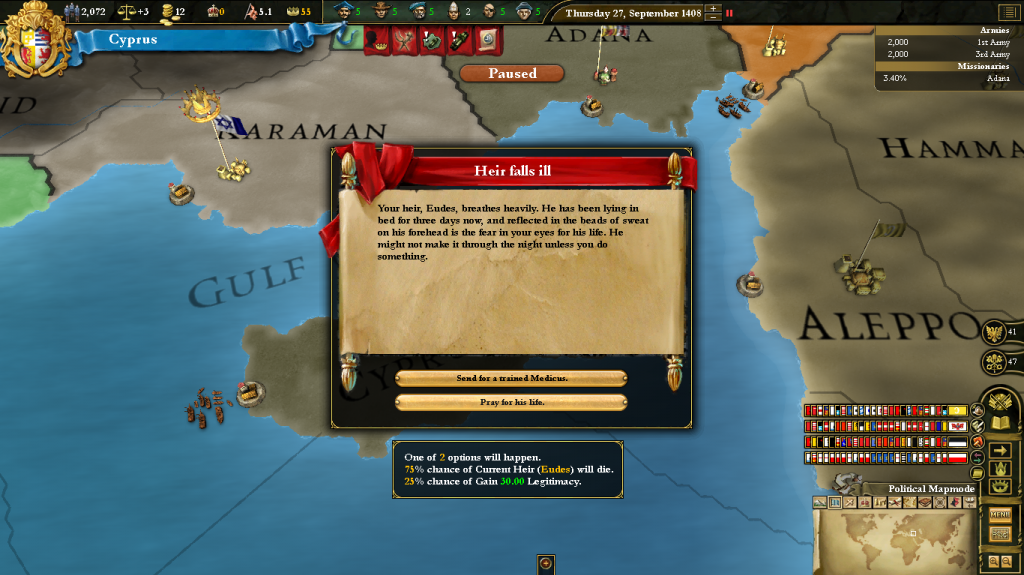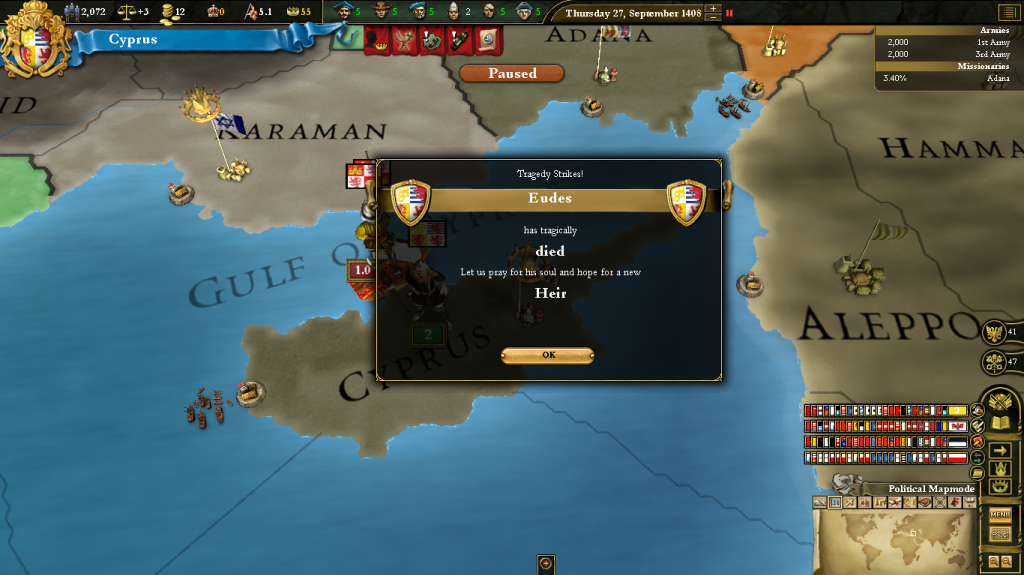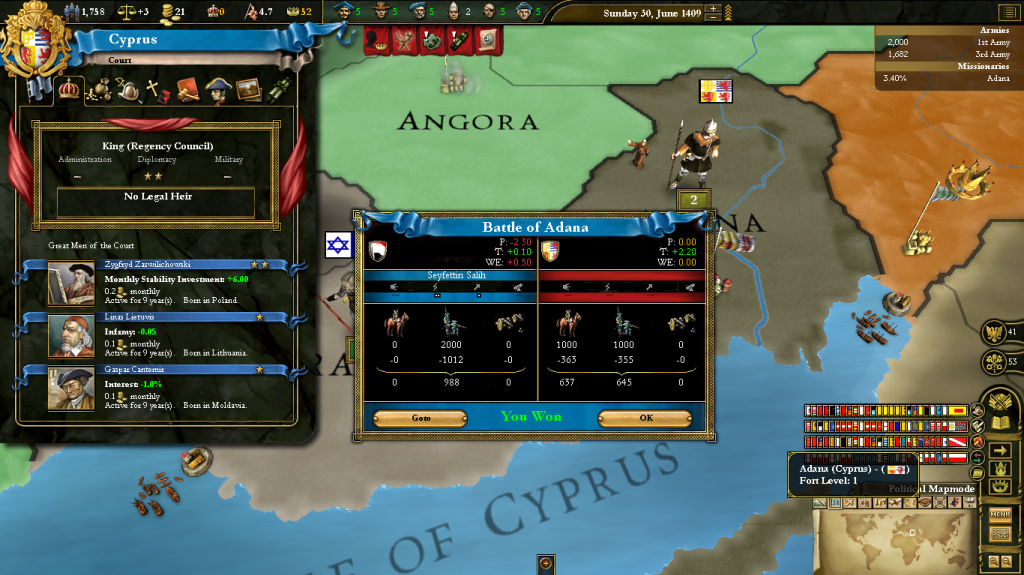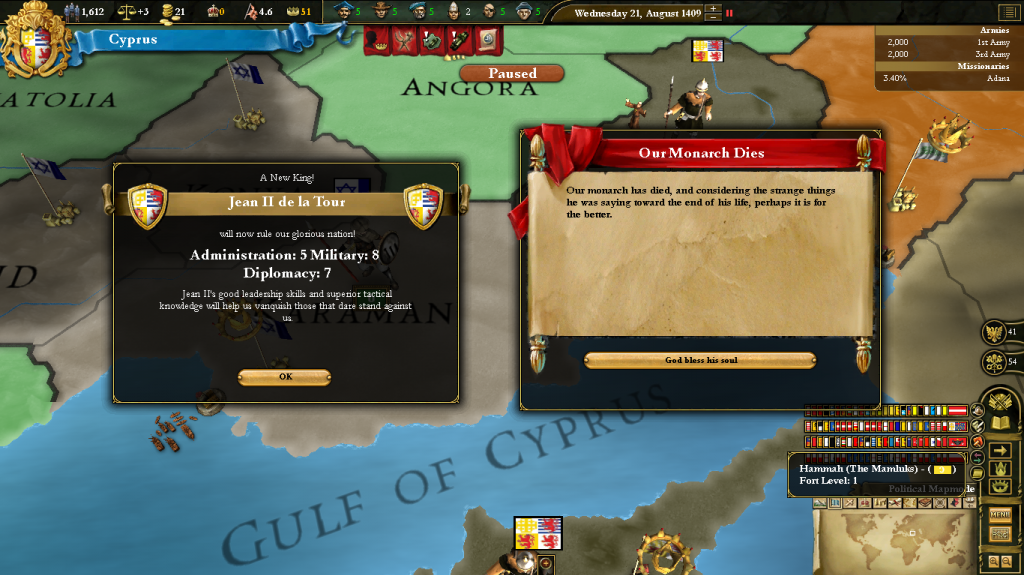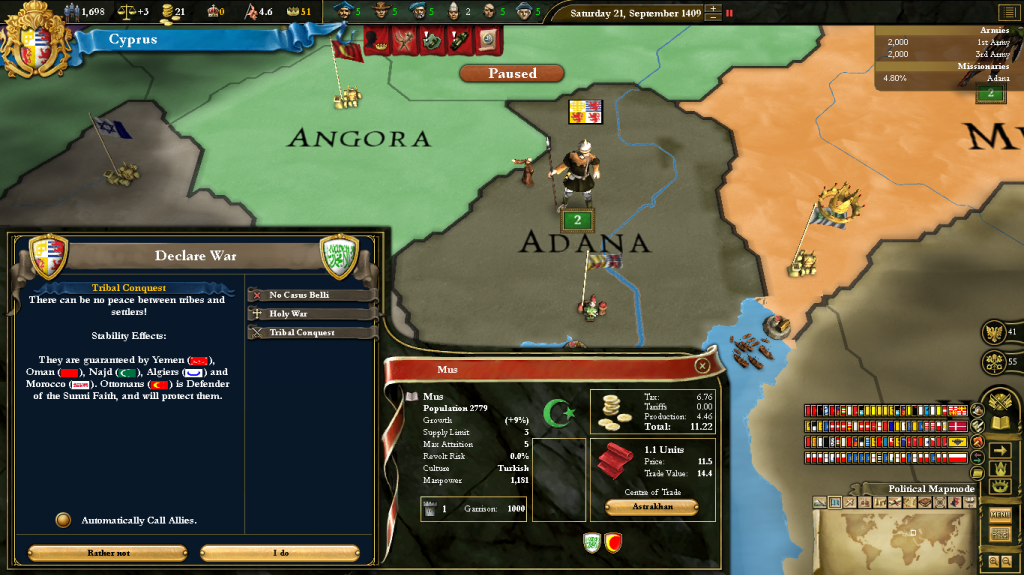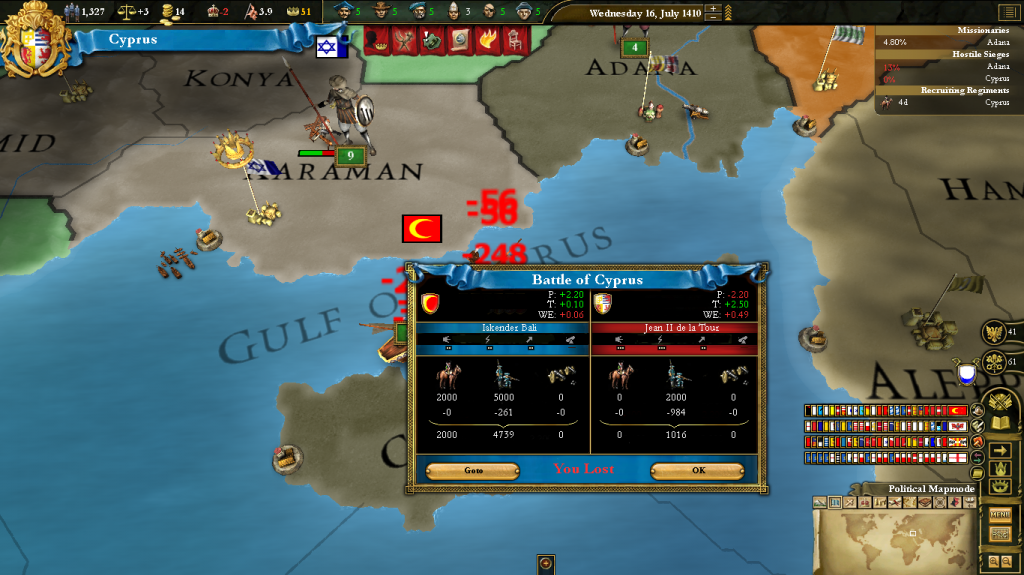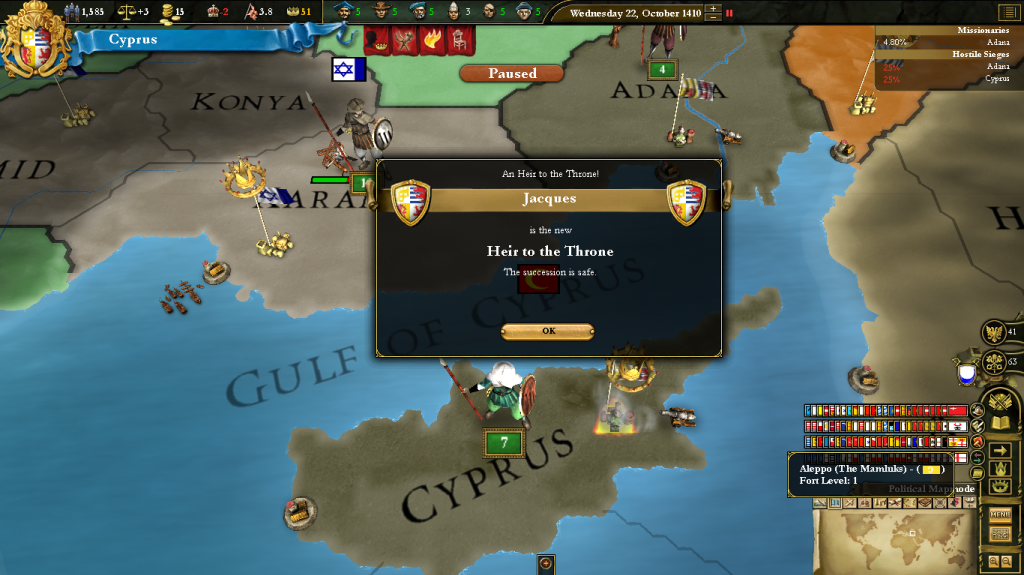King Janus was the latest of the long line of Kings provided by the House of Lusignan, ruling over the Kingdom of Cyprus with near absolute authority. He had centuries of tradition to support him, for his line had once been Kings of Jerusalem, a title he still claimed and coveted, although they had long since lost those eastern lands. A devout Catholic, he ruled over a nation of Orthodox Christians, heretics in his eyes, a warrior at heart too, although he possessed neither the flare of great leadership nor a particularly strong army. He had only 1,000 infantry at his disposal and only two ships, his nation was poor and he had no alliances. But he would make Cyprus great again, he would restore the Lusignan family to their rightful place! Deus Vult!
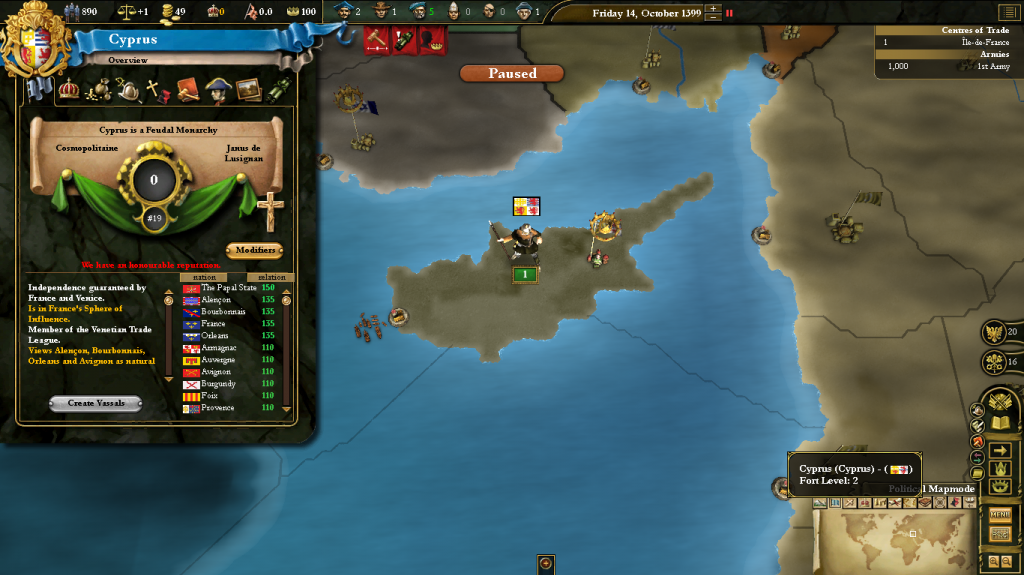
Having come to the throne only four months prior, Janus was itching to prove himself as a soldier in the same vein as the crusaders of old. Everytime he turned his eyes on a prize the nobles of his court would beg him to avoid war, complaining about the "Ottoman threat" when he looked toward the many small Muslim states and then whining about the "scary Venetians" when he began longing for any one of the numerous Christian states scattered around the Mediterranean. Well no more! It was time for war. All funds going towards research and development in the Kingdom were halted, whilst he decided against hiring any advisers who would only drain money away from the crown. The King then declared war upon the small state of Ramazan which lay to the north in territories once held by the crusader Kingdom of Armenian Celicia.
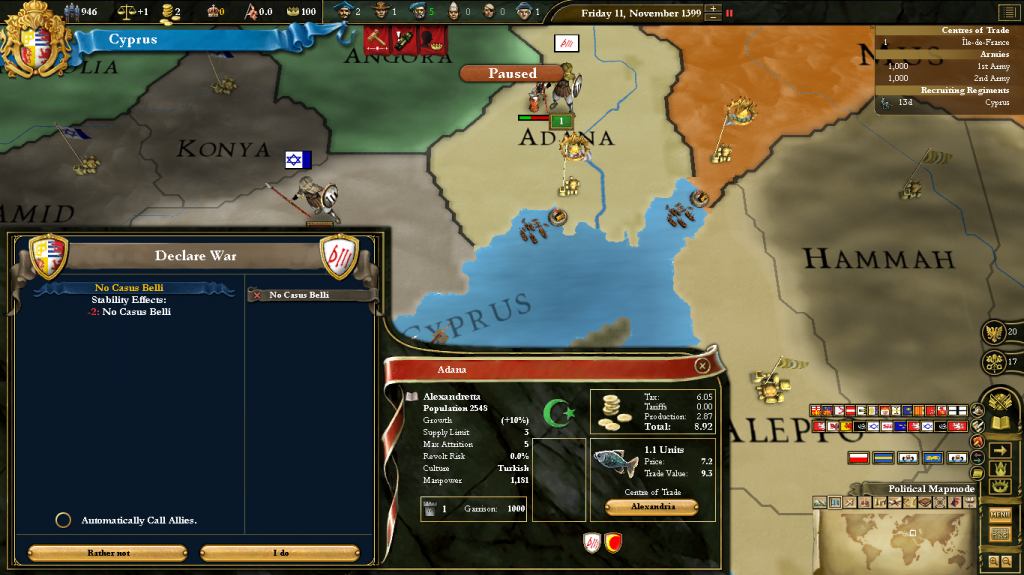
Hiring as many mercenaries as he could afford (and draining the treasury in the process), Janus swiftly embarked upon his ships and set out northward, landing in Adana and bringing battle to the infidels.
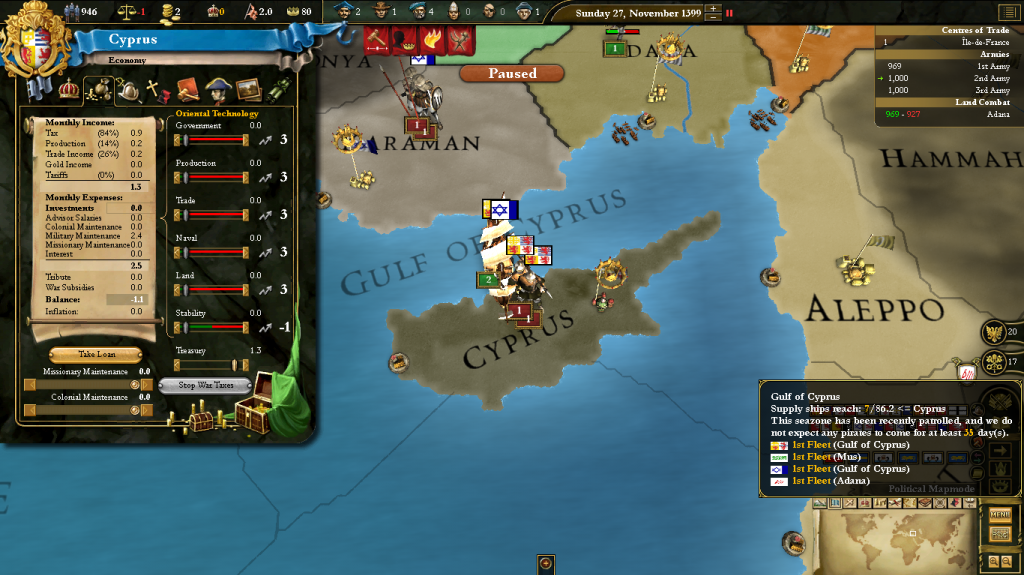
As the Cypriots, led by their King, struggled against their enemies, the first group of mercenaries hurried toward the mainland, desperatly trying to reached their beleaguered companions before they were pushed back into the sea.
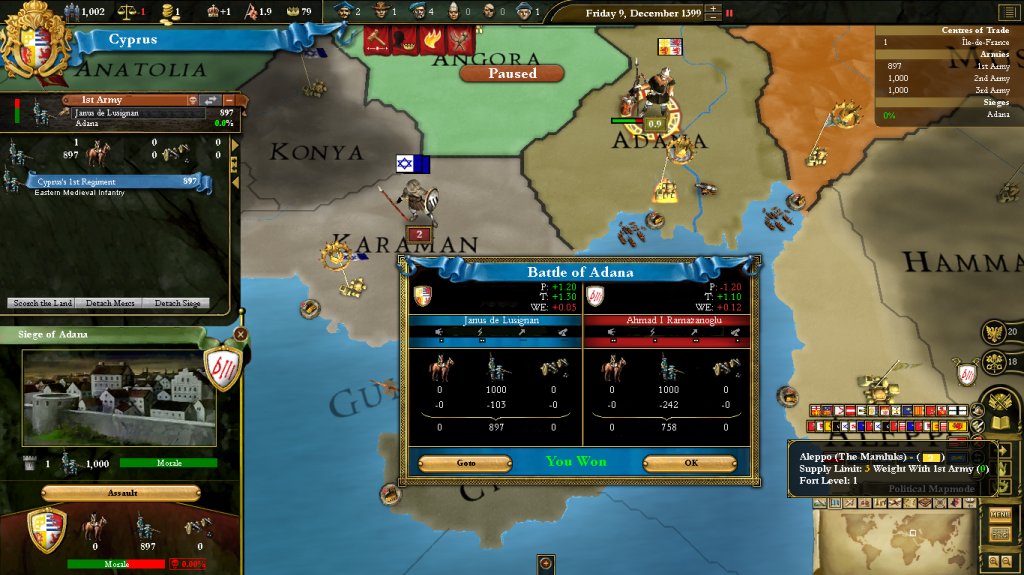
But there was no cause for concern, as the King's men had defeated the enemy, inflicting twice as many casualties as they had suffered, and laid siege to their capital. The siege continued, despite a second attempt by the Ramazans to push the crusaders out, but the fools were slaughtered before their capital. During this time, joyous news reached the King, stability had increased (those uppity nobles had been unhappy ever since the King actually decided to do something rather than just led them swan about all day) and the Queen had given birt to a son, Eudes!! The crusader line was now secure.
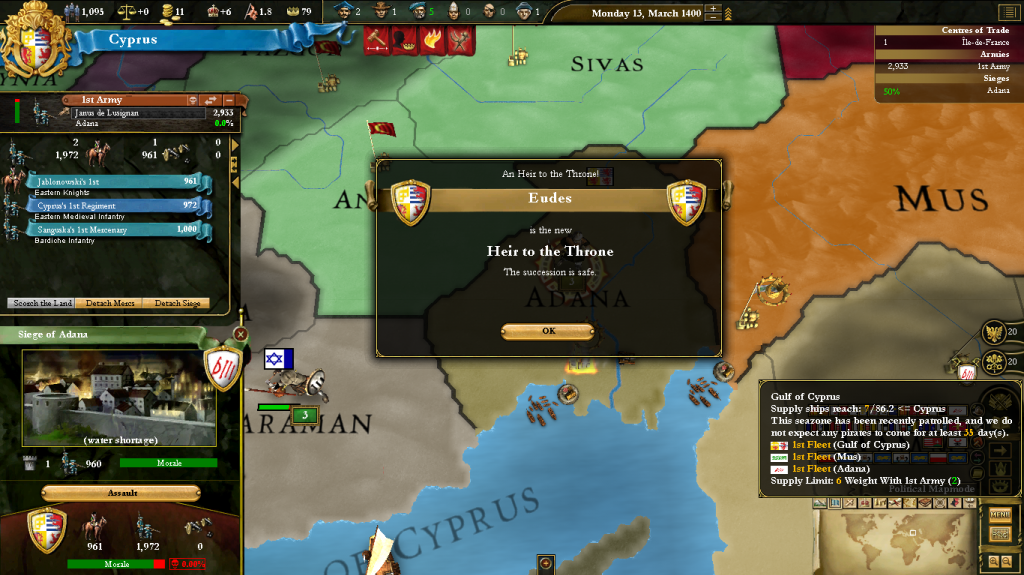
The ongoing siege eventually came to an end and the infidels, having lost their capital, surrendered and were annexed to the Kingdom of Cyprus (or rather the Kingdom of Jerusalem as its rulers still claimed it to be). Having succeeded in this initial venture and proven that Cyprus was a force to be reckoned with, the King set about forging alliances with some of the Christian states, the brave Knights of St John, or old allies and comrades in arms, returning to our side, the Pope,too, joining us in our divine mission, and the devout realm of Naples also supporting us. Achea was allowed to join too, even though the King disliked independent Greek states, seeing as they were heretics and not to be trusted. If it wasn't for those bloody Venetians guaranteeing half the world, he would have conquered them!!
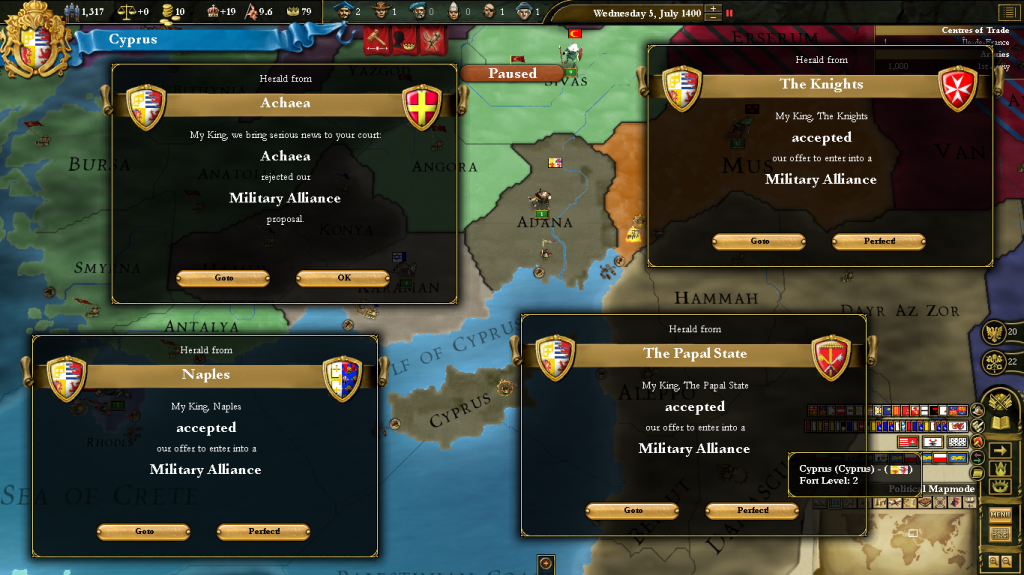
Of course, with expansion came new problems. The evil heathen Timurids had appeared on the eastern border, ransacking the lands of the equally un-Christian-and-so-unworthy-of-our-pity Dulkadir. The main concern here was that the Hordes might descend upon the currently all but powerless crusaders. Also, no more expansion in in region was going to throw a spanner in the works for a while yet.
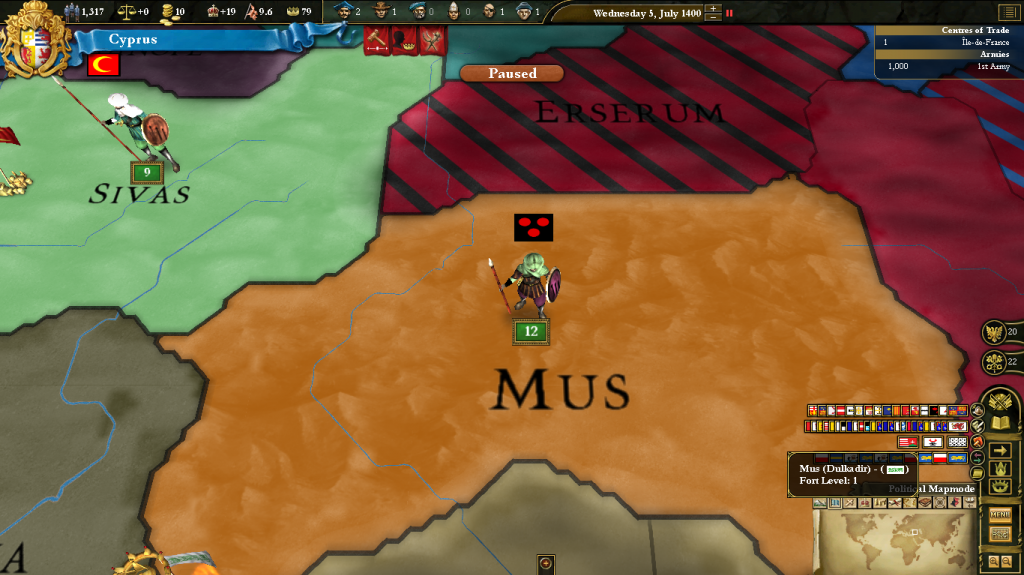
Nevertheless, things were going well for the Lusignans, the treasury slowly recovering from the beating it had taken, whilst the King eyed up other small nations that he might be able to swallow up. But then word reached him. The Holy Father and the Neapolitans had decided the best thing in Cyprus' interests was to go to war with one another. Oh thank you, thanks a whole bunch. The King was less than pleased with the two Catholic nations squabbling like children. "Oh well," he sighed, "off to another war."
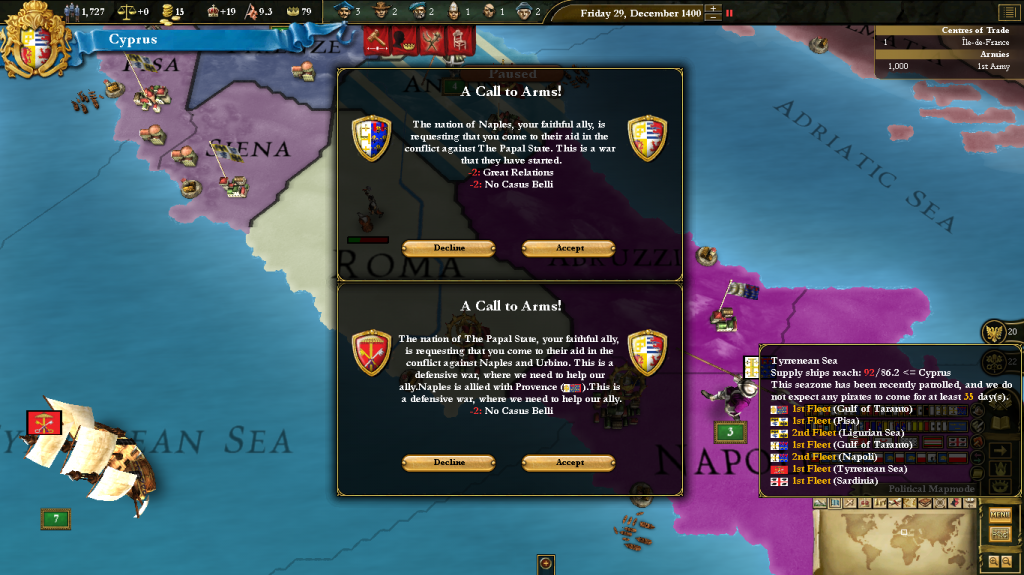

Having come to the throne only four months prior, Janus was itching to prove himself as a soldier in the same vein as the crusaders of old. Everytime he turned his eyes on a prize the nobles of his court would beg him to avoid war, complaining about the "Ottoman threat" when he looked toward the many small Muslim states and then whining about the "scary Venetians" when he began longing for any one of the numerous Christian states scattered around the Mediterranean. Well no more! It was time for war. All funds going towards research and development in the Kingdom were halted, whilst he decided against hiring any advisers who would only drain money away from the crown. The King then declared war upon the small state of Ramazan which lay to the north in territories once held by the crusader Kingdom of Armenian Celicia.

Hiring as many mercenaries as he could afford (and draining the treasury in the process), Janus swiftly embarked upon his ships and set out northward, landing in Adana and bringing battle to the infidels.

As the Cypriots, led by their King, struggled against their enemies, the first group of mercenaries hurried toward the mainland, desperatly trying to reached their beleaguered companions before they were pushed back into the sea.

But there was no cause for concern, as the King's men had defeated the enemy, inflicting twice as many casualties as they had suffered, and laid siege to their capital. The siege continued, despite a second attempt by the Ramazans to push the crusaders out, but the fools were slaughtered before their capital. During this time, joyous news reached the King, stability had increased (those uppity nobles had been unhappy ever since the King actually decided to do something rather than just led them swan about all day) and the Queen had given birt to a son, Eudes!! The crusader line was now secure.

The ongoing siege eventually came to an end and the infidels, having lost their capital, surrendered and were annexed to the Kingdom of Cyprus (or rather the Kingdom of Jerusalem as its rulers still claimed it to be). Having succeeded in this initial venture and proven that Cyprus was a force to be reckoned with, the King set about forging alliances with some of the Christian states, the brave Knights of St John, or old allies and comrades in arms, returning to our side, the Pope,too, joining us in our divine mission, and the devout realm of Naples also supporting us. Achea was allowed to join too, even though the King disliked independent Greek states, seeing as they were heretics and not to be trusted. If it wasn't for those bloody Venetians guaranteeing half the world, he would have conquered them!!

Of course, with expansion came new problems. The evil heathen Timurids had appeared on the eastern border, ransacking the lands of the equally un-Christian-and-so-unworthy-of-our-pity Dulkadir. The main concern here was that the Hordes might descend upon the currently all but powerless crusaders. Also, no more expansion in in region was going to throw a spanner in the works for a while yet.

Nevertheless, things were going well for the Lusignans, the treasury slowly recovering from the beating it had taken, whilst the King eyed up other small nations that he might be able to swallow up. But then word reached him. The Holy Father and the Neapolitans had decided the best thing in Cyprus' interests was to go to war with one another. Oh thank you, thanks a whole bunch. The King was less than pleased with the two Catholic nations squabbling like children. "Oh well," he sighed, "off to another war."



